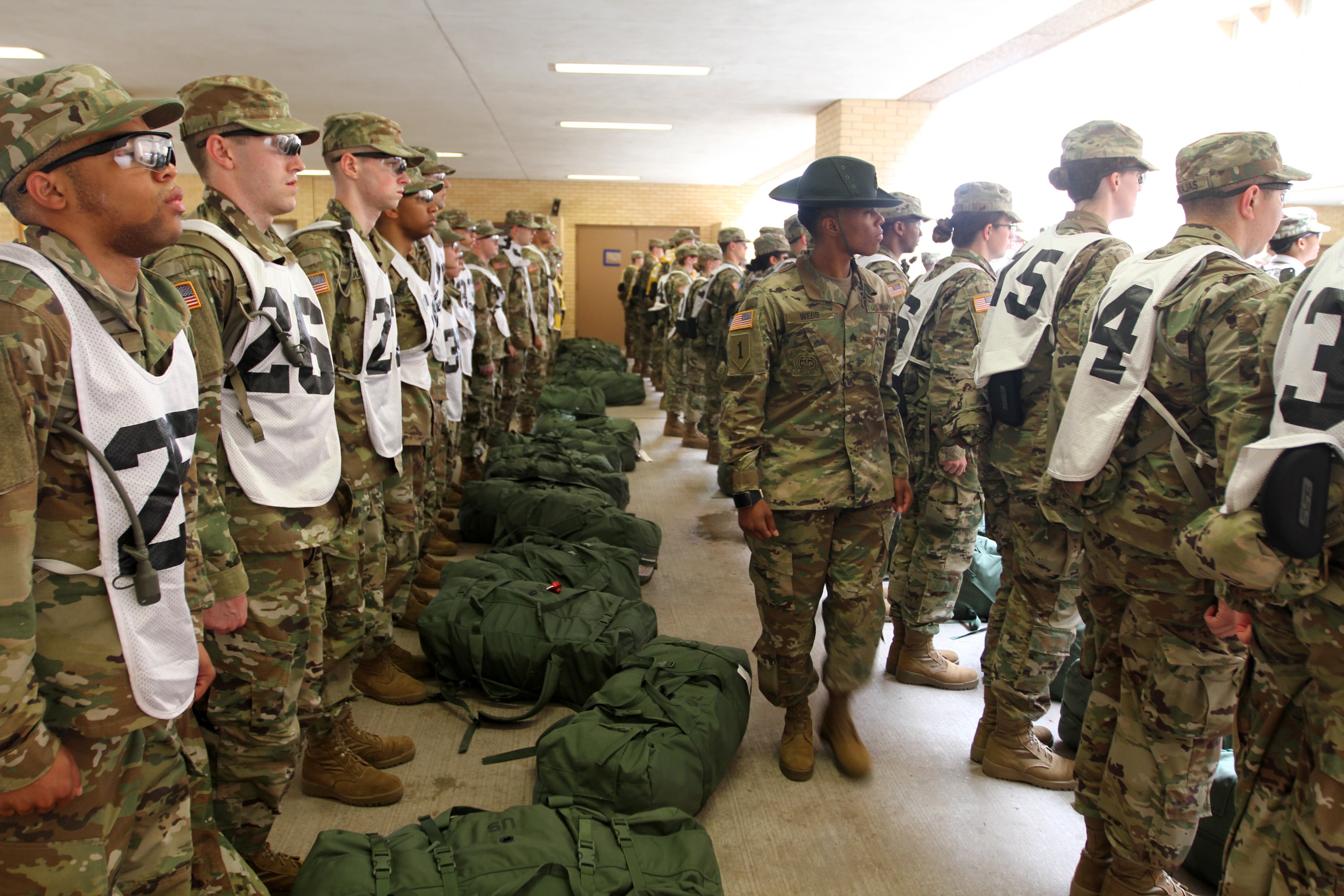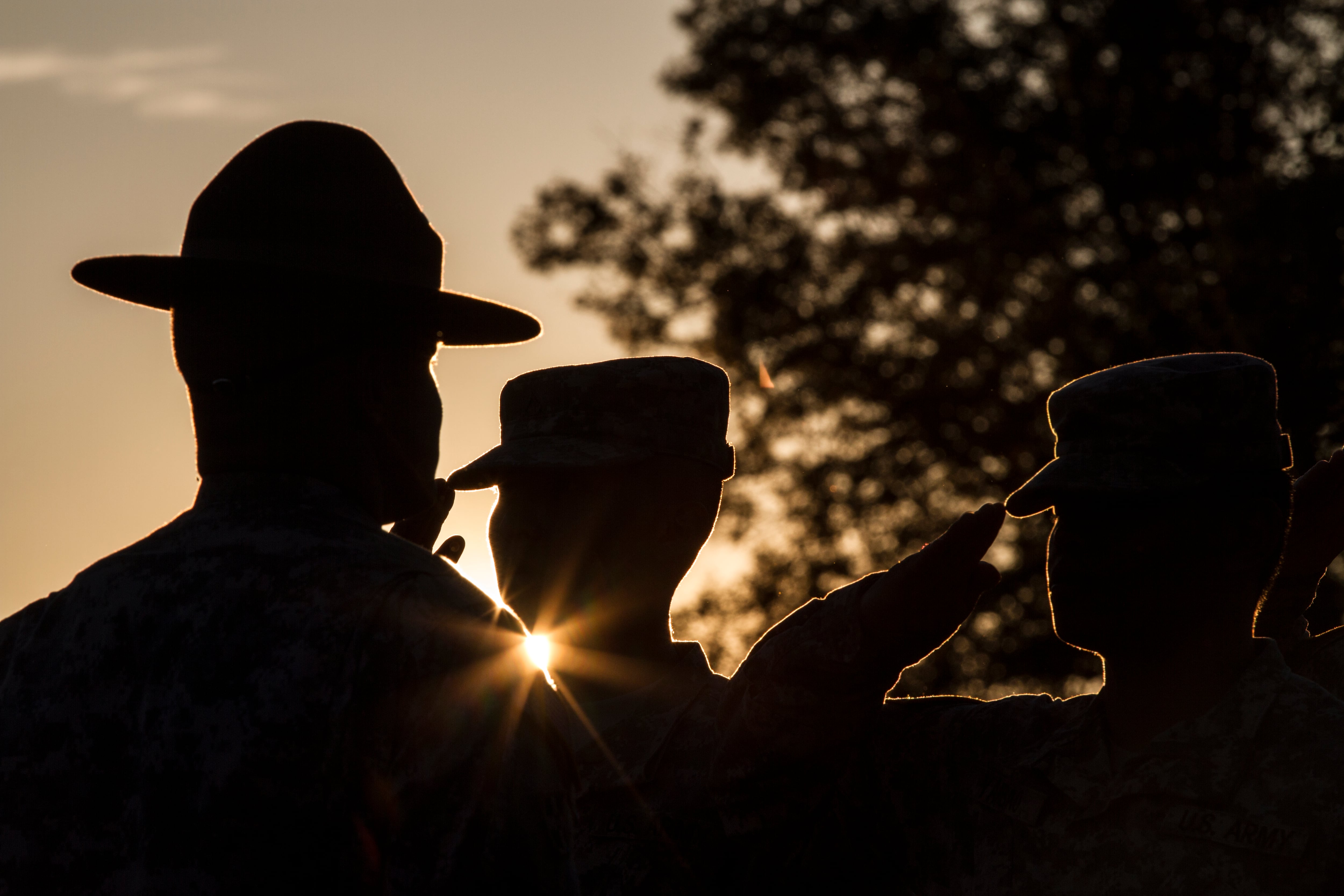The soldier standing guard in the driving rain or snow at the Tomb of the Unknown Soldier will get a raise beginning Jan. 1.
So will soldiers in the Old Guard's Caisson Platoon, some members of the Asymmetric Warfare Group and the defense secretary's security team.
Also in line for a raise are some drill sergeants and recruiters.
These changes in Special Duty Assignment Pay are all effective Jan. 1, the Army announced Nov. 23.
"These updates to incentive pay allow us to target and recognize those soldiers who simply have difficult assignments," said Larry Lock, chief of the 2016 Special Pay Panel, in a statement.
SDAP is a discretionary incentive pay that eligible enlisted soldiers in the grade of E-3 or higher may receive based on their duty assignment, according to information from the Army.
SDAP pay ranges from $75 a month to $450 a month, depending on a soldier's assignment.
More than 23,000 soldiers received special duty pay in fiscal year 2015, said Lt. Col. Randy Taylor, an Army spokesman.
Five new jobs have been added to the Army’s SDAP roster for next year. Two others will see pay increases, while one assignment has been dropped all together, the Army said.
The five jobs added to the list are:
- The Old Guard Caisson Platoon.
- The Old Guard Tomb of the Unknown Soldier.
- Asymmetric Warfare Group operational advisors in the ranks of E-7 through E-9.
- U.S. Army Pacific Command Northern Warfare Training Center instructors.
- The Secretary of Defense Security Team.
They will each receive $225 a month in extra pay, except for the USARPAC Northern Warfare Center instructors. The instructors will get $150 a month.
Soldiers who will lose money include Warrior Transition Unit leadership, who will receive $150 a month instead of $225.
Soldiers who are Criminal Investigation Command special agents, with the military occupational specialty of 31D, will be dropped from SDAP entirely effective March 1.
The Army plans to terminate SDAP for these soldiers over a 12-month period. On March 1, their SDAP, which is currently $150 a month, will be cut in half, and the rest of the pay will be phased out for no more than 12 months, Taylor said.

Drill Sgt. Andrea Webb inspects her new trainees at Fort Sill, Okla., March 9, 2016. Some drill sergeants could see an increase in Special Duty Assignment Pay effective Jan. 1, the Army has announced.
Photo Credit: Cindy McIntyre/Army
Other changes include a raise for some drill sergeants, who can move up from the baseline $300 extra a month to $375 "based upon service as a drill sergeant, completion of a certification program and approval by their battalion commander," Taylor said.
There's also a new payment scheme for recruiters, who start at $300 a month.
Beginning Jan. 1, production recruiters can move up to $375 a month after a year on the job, successfully completing the Advanced Training Program, and getting a recommendation from their battalion commander.
In addition, recruiting station commanders assigned to a recruiting center or station; recruiting guidance counselors who are master sergeants and below; recruiting battalion operations noncommissioned officers; recruiting battalion master trainers; and recruiting company first sergeants will be authorized $375 extra pay a month.
Soldiers with the recruiter MOS of 79R who are assigned to staff positions are authorized an extra $75 a month.
Special duty assignments are those designated as having extremely demanding duties requiring extraordinary effort or an unusual degree of responsibility, according to the Army.
Assignments that qualify for SDAP include the sergeant major of the Army, the 160th Special Operations Aviation Regiment, nominative command sergeants major and sergeants major, the White House Communications Agency, Ranger-qualified sergeants and higher in the 75th Ranger Regiment, air traffic controllers and Army Cyber Command.
"The goal of the Special Pay Panel was to validate recommendations of challenging positions that require soldiers to consistently perform in an 'above and beyond' manner and then make recommendations concerning levels of incentive payments," Lock said.
The panel, which meets biennially to review SDAP, looked at every military occupational specialty or program that requested consideration for the special pay.
Officials said soldiers should speak to the human resources specialists in their unit to see what duty assignments are approved for SDAP under the new policy.
Meghann Myers is the Pentagon bureau chief at Military Times. She covers operations, policy, personnel, leadership and other issues affecting service members.





